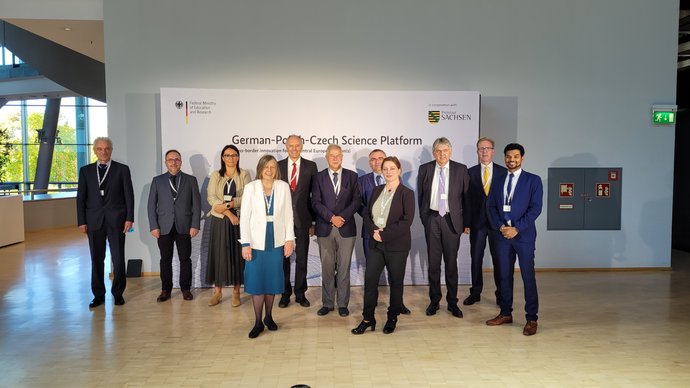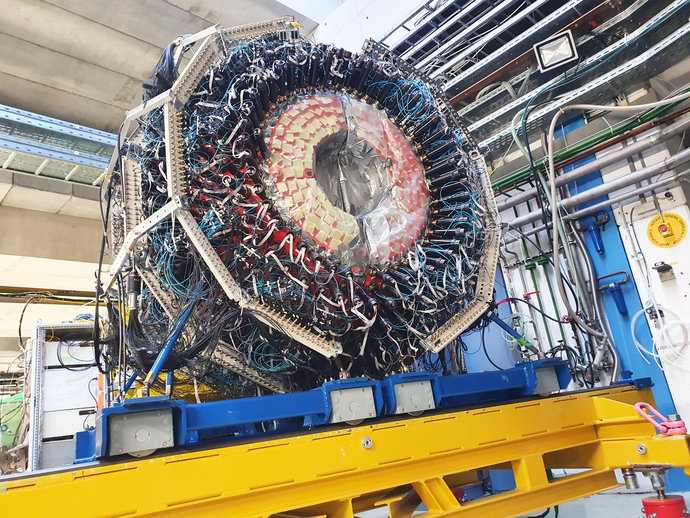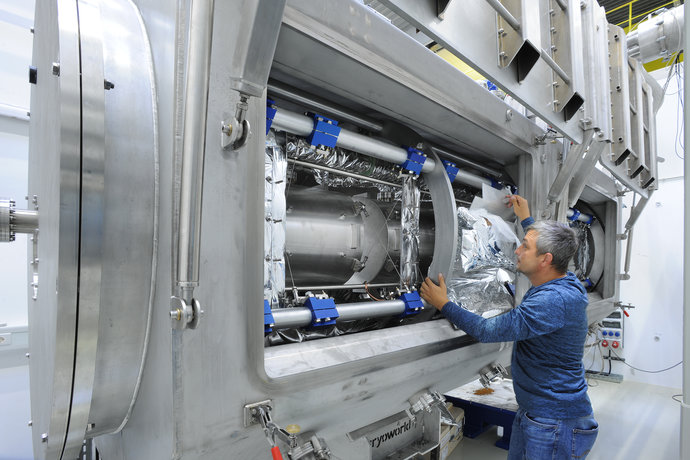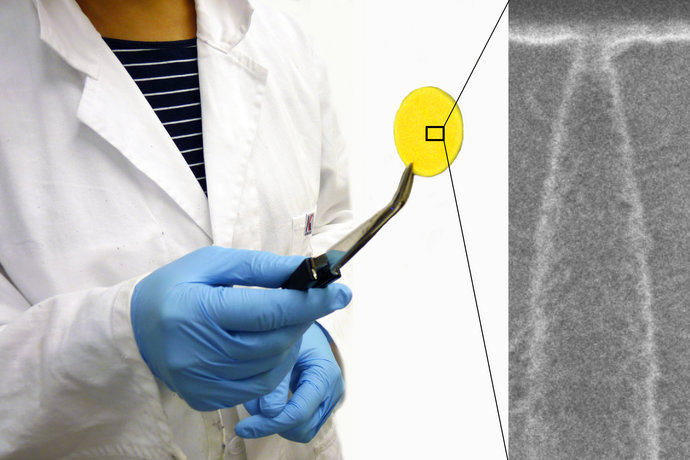
A new cooperation agreement strengthens the link between GSI/FAIR and the two Polish universities Wrocław University of Science and Technology (WUST) and University Wrocław (UWr). The agreement within the framework of the GET_INvolved program was signed recently in Dresden during the German-Polish-Czech Science Platform, an international science conference at the invitation of Federal Research Minister Anja Karliczek in cooperation with the Minister-President of Saxony Michael Kretschmer.

With the WASA detector, a very special instrument is currently being set up at GSI/FAIR. Together with the fragment separator FRS, it will be used to produce and study so-called hypernuclei during the upcoming experiment period of FAIR Phase 0 in 2022. For this purpose, the assembly, which weighs several tons, is being transferred to the facility in a complex installation procedure. The scientific relevance of the planned experiments with hypernuclei is also shown by a recent review article in…

Robert Klas of Helmholtz Institute Jena, a branch of GSI, has received this year's PhD Award of the SPARC Collaboration. The SPARC PhD Award 2021 was presented online during the 18th workshop of the collaboration in September. The award was given in recognition of Klas's PhD thesis “Efficiency Scaling of High Harmonic Generation using Ultrashort Fiber Lasers”.

The HElmholtz LInear ACcelerator HELIAC is a continuous-wave linear accelerator planned at GSI/FAIR that opens up new research opportunities with its continuous particle beam. The first cryogenic accelerator module for HELIAC, the so-called Advanced Demonstrator, has now been cooled down to four Kelvin with liquid helium and tested.

Easy and fast detection of viruses are crucial in a pandemic. Based on single-nanopore membranes of GSI, an international interdisciplinary team of researchers developed a test method that detects SARS-CoV-2 in saliva, without sample pretreatment, with the same sensitivity as a qPCR test, and in only 2 hours. On top, the sensor can distinguish infectious from non-infectious corona viruses — a crucial innovation.












